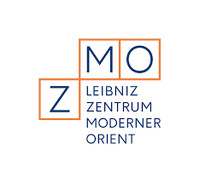Zusammenfassung
- Was Call For Papers — Workshop Climate Justice and Migration: Mobility, Development and Displacement in the Global South
- Wann to (Europe/Berlin / UTC100)
- Wo Berlin
- Termin herunterladen iCal Datei herunterladen
Beschreibung
This workshop seeks interdisciplinary contributions from the social sciences on environmental mobility, migration and displacement in countries pro-jected to be heavily affected by climate change. The workshop will address questions of definition, causality, and the consequences of environmental mobility and immobility in the global South, engaging with the pressing problem of climate change as a matter of public policy, social scientific re-search, and social justice. A key priority is to relate ‘environmental’ process-es to ‘human’ factors that induce mobility in the South. These include war and conflict, but also ill-conceived and unsustainable pathways of growth-led development. Urbanization, urban gentrification, infrastructure building and resource extraction – processes that barely figure in debates about climate migration – will receive close scrutiny.
The workshop will challenge the treatment of environmental migration as a physical process without reference to the political, economic and historical contexts that shape politics, governance and social relations beyond the global North. Questions of resource distribution, environmental governance at various scales, as well as questions of social justice will be incorporated to broaden the terms of a debate that too often separates ‘nature’ from politics and human affairs.
The workshop has four main objectives and areas of exploration:
i) Definition of concepts: The workshop will address the difficulties in defin-ing environmental migration, not least the problem of isolating ‘environ-mental’ from ‘human’ factors. The political, legal and practical implications of such classifications will be explored in a context increasingly shaped by Malthusian anxieties about migrant flows to Europe and the United States from the global South.
ii) Causality and context: The workshop seeks to shed light on the way mi-gration is bound up with developmental pathways. This implies context-based analysis of environmental governance – policies that cause or re-spond to human mobility, displacement and environmental change.
iii) Consequences: The workshop seeks to analyse the dynamics of envi-ronmental migration in their full complexity, taking into account migrant experiences and diverse outcomes of mobility. Much environmental migra-tion is effectively forced displacement that causes trauma and hardship, driving peasants and rural dwellers into largely undocumented informal urban economies. But are there also circumstances under which environ-mental migration leads to relatively favourable experiences for forcibly re-located individuals and communities or those migrating as an adaptive strategy? How do migratory outcomes vary in accordance with state reha-bilitation packages and other contingencies?
iv) Immobility/Displacement: The trajectories of those who depart from a place that undergoes environmental transformation must be related to narratives of those who do not or cannot emigrate, and indeed to the expe-riences of newcomers who arrive in degraded environments. The concept of ‘dis-placement,’ as referred to in this workshop, refers to a phenomenon that can occur in the absence of mobility – in broad terms – as any kind of alienation from one’s habitat due to rapid transformations of environ-ments.
Units of analysis and case studies
Country-based studies from urban and/or rural localities and regions in Asia, Africa, the Middle East and Latin America are welcome; so too are al-ternative framings that allow for the study of connections, networks and pathways of mobility that go beyond the borders of nation-states.
Accommodation and travel funding
Accommodation for two or three nights and, where possible, travel costs of participants will be covered. Please state your requirements for travel funding.
Please send paper proposals of 500 words and a short bio by August 1st 2019 to: ali.nobilahmad@zmo.de
Early submissions are welcome. Successful participants will be notified of their selection by 15 August 2019.
Publication
An edited publication based on paper presentations and discussions is en-visaged, featuring written contributions from participants.
Contact: ali.nobilahmad@zmo.de
Kontakt
Nähere Informationen
ali.nobilahmad[ at ]zmo.de
Dokumente senden an
ali.nobilahmad[ at ]zmo.de

